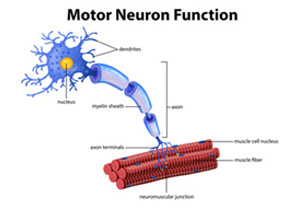
Brain fog is a frustrating and often debilitating condition that can leave you feeling unmotivated, forgetful, and unable to concentrate. It is a common symptom of many health conditions, including chronic fatigue syndrome, fibromyalgia, and autoimmune disorders. But even if you don’t have an underlying medical condition, brain fog can still affect your ability to function at your best. Fortunately, there are strategies you can use to break through the haze and get back to a state of clarity and focus. In this article, we’ll explore some of the most effective ways to overcome brain fog so you can feel more alert and productive in your daily life.
Brain Fog Meaning:
Brain fog is a common term used to describe a feeling of mental confusion or lack of clarity. This can manifest as difficulty concentrating, forgetfulness, or feeling “spaced out.” It can be caused by a variety of factors, including stress, lack of sleep, poor nutrition, or certain medical conditions.
If you are experiencing brain fog, you may be struggling to focus on work or everyday tasks, which can be frustrating and even impact your overall quality of life. In this blog, we will discuss some strategies that can help you break through brain fog and improve your mental clarity and focus.
Brain Fog Reduction Strategies
Your Minute Read on Fighting Brain Fog
Get Enough Sleep
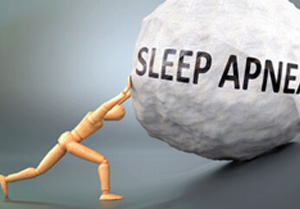
One of the most important things you can do to improve mental clarity is to get enough sleep. The National Sleep Foundation recommends that adults aim for 7-9 hours of sleep per night. Lack of sleep can lead to cognitive impairment, including difficulty concentrating and memory problems. Also, try implementing a consistent sleep schedule, going to bed, and waking up at the same time each day.
Exercise Regularly
Exercise is not only good for your physical health, but it can also improve your mental clarity and focus.
Stay Hydrated
Dehydration can lead to brain fog and fatigue, so it is important to stay hydrated throughout the day. The Institute of Medicine recommends that men aim for 3.7 liters of fluid per day, while women should aim for 2.7 liters. This can include water, herbal tea, and other low-sugar beverages.
Eat a Healthy Diet
Eating a healthy diet is essential for overall health and can also improve mental clarity and focus. Avoid processed foods and foods high in sugar, which can cause blood sugar spikes and crashes. Some nutrients that are particularly important for brain health include omega-3 fatty acids, B vitamins, and antioxidants.
Manage Stress
Stress can lead to brain fog and difficulty concentrating, so it is important to find ways to manage stress effectively. This can include practicing mindfulness, deep breathing, or meditation. Exercise can also be a great way to reduce stress. It’s also important to identify and address the root causes of stress, such as work or relationship issues, and develop a plan to address them.
Take Breaks
If you are working on a task for an extended period, taking regular breaks can help you maintain focus and avoid mental fatigue. Try taking a short walk, doing a few stretches, or just stepping away from your work for a few minutes. You can also try the Pomodoro Technique, which involves working for 25 minutes and then taking a 5-minute break.
Prioritize Tasks
When you have a lot to do, it can be overwhelming and lead to mental fatigue. Prioritizing your tasks can help you focus on the most important tasks first and avoid getting bogged down in small details. Try making a to-do list and ranking tasks in order of importance. You can also break larger tasks into smaller, more manageable chunks to avoid feeling overwhelmed.
Practice Mindfulness
Mindfulness is to be aware of your thoughts and feelings. This can help reduce stress and improve mental clarity and focus. Try practicing mindfulness for a few minutes each day, either through meditation or simply by taking a few deep breath
Brain Fog Frequently Asked Questions
What Is Brain Fog?

Brain fog describes a feeling of mental confusion or lack of mental clarity. It can cause difficulty concentrating, forgetfulness, and feeling “spaced out.” Brain fog can be caused by stress, lack of sleep, poor nutrition, certain medications, and medical conditions.
Treatment for Foggy Brain: What Is Brain Fog and Best way to Treat It?

Brain fog can be treated by addressing the underlying cause. For example, if brain fog is caused by lack of sleep, improving sleep habits can help. Other strategies to help improve mental clarity include exercising regularly, eating a healthy diet, managing stress, taking breaks, prioritizing tasks, and practicing mindfulness.
Brain Fog Causes: Reasons You May Have Brain Fog

There are many reasons why someone may experience brain fog. Some common causes include lack of sleep, poor nutrition, stress, hormonal imbalances, certain medications, medical conditions such as chronic fatigue syndrome or fibromyalgia, and environmental factors such as exposure to toxins.
How to Beat Brain Fog
How to reduce Brain Fog and increase Mental Clarity
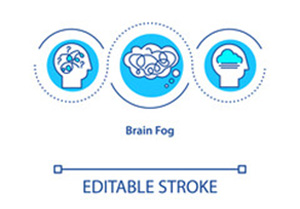
There are several strategies that can help you beat brain fog, including:
- Getting enough sleep
- Exercising regularly
- Eating a healthy diet
- Staying hydrated
- Managing stress
- Taking breaks
- Prioritizing tasks
- Practicing mindfulness
What is Brain Fog vs Dementia?
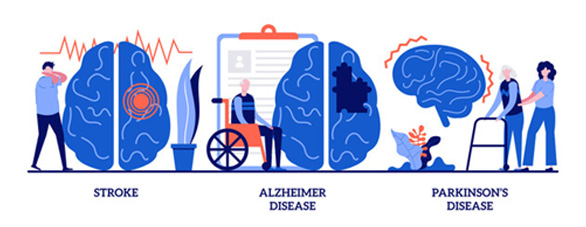
Brain fog is different from dementia. Dementia is a group of cognitive disorders that affect memory, thinking, and behavior. While brain fog can cause difficulty concentrating and forgetfulness, it is typically temporary and not a sign of a more serious underlying condition such as dementia.
Brain Fog Solutions to Help You Improve Concentration

Some solutions to help improve concentration when experiencing brain fog include:
- Taking breaks and changing your environment
- Simplifying your tasks and focusing on one thing at a time
- Practicing mindfulness and meditation
- Using tools like to-do lists or reminders to help stay organized and focused.
- Getting enough sleep and staying hydrated
- Exercising regularly and eating a healthy diet
Probable causes of brain fog?
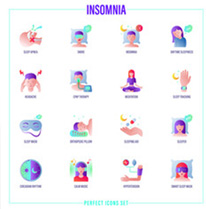
Causes of Brain Fog may include:
- Lack of sleep
- Poor nutrition
- Stress
- Hormonal imbalances
- Certain medications
- Medical conditions such as chronic fatigue syndrome or fibromyalgia
- Environmental factors such as exposure to toxins
- Emotional or psychological factors such as anxiety or depression.
Symptoms of Brain Fog

Some common symptoms of brain fog include:
- Difficulty concentrating or remembering things.
- Feeling disoriented or “foggy”
- Trouble making decisions or thinking clearly.
- Fatigue or low energy
- Headaches or dizziness
- Irritability or mood swings
- Difficulty sleeping or insomnia.
Tips and Tricks to Reduce Brain Fog
Natural Remedies for Brain Fog

If you are experiencing brain fog, there are several things you can do to reduce its severity or duration. Here are some tips and tricks:
- Get Enough Sleep: Lack of sleep can contribute to brain fog, so it is important to prioritize getting enough sleep each night. Try to get 7-9 hours of sleep each night and stick to a regular sleep schedule.
- Stay Hydrated:
- Eat a Healthy Diet: reduce brain fog by eating whole foods like fruits, vegetables, lean protein, and healthy fats.
- Exercise Regularly: Exercise can help improve cognitive function and reduce stress, both of which can help reduce brain fog.
- Manage Stress: Chronic stress can contribute to brain fog, so it is important to find ways to manage stress. Some effective strategies include mindfulness meditation, deep breathing, and regular exercise.
- Take Breaks: If you are working on a task for a long period of time, taking short breaks can help improve focus and reduce brain fog. Try taking a 5-10 minute break every hour or so.
How do you clear up brain fog?
How to get rid of brain fog fast
The best way to clear up brain fog depends on the underlying cause. If you’re experiencing brain fog due to lack of sleep, for example, getting more sleep may help. Here are some general strategies that may help:
- Get Enough Sleep: As mentioned earlier, lack of sleep can contribute to brain fog. Make sure you are getting enough sleep each night and sticking to a regular sleep schedule.
- Eat a Healthy Diet: A diet rich in whole foods like fruits, vegetables, lean protein, and healthy fats can help improve brain function and reduce brain fog.
- Exercise Regularly: Regular exercise can help improve cognitive function and reduce stress, both of which can help reduce brain fog.
- Manage Stress: Finding ways to manage stress, such as through mindfulness meditation or deep breathing, can also help reduce brain fog.
- Take Breaks: Taking short breaks while working on a task can help improve focus and reduce brain fog.
What are the Causes of Brain Fog?
Brain fog factors, including:
- Lack of sleep
- Poor nutrition
- Stress
- Hormonal imbalances
- Certain medications
- Medical conditions such as chronic fatigue syndrome or fibromyalgia
- Environmental factors such as exposure to toxins
- Emotional or psychological factors such as anxiety or depression
What is the Outlook for Brain Fog?
Why You Could Have Brain Fog?

Certain prescription and over-the-counter medications can impair thinking. Call your doctor if you take medication and discover that you are not thinking as clearly as you should be or that you’ve lost your memory all of a sudden. Make sure to disclose all the prescriptions you take for them.
The medical world is divided on the idea that sensitivity to various substances, both natural and synthetic, might potentially result in brain fog. Chemotherapy, which uses powerful chemicals to treat cancer, can cause what is frequently referred to as “chemo brain.” You might find it difficult to multitask, remember specifics like names or dates, or take longer to complete tasks. It typically disappears fast.
Dementia vs. Brain Fog
Brain fog and illnesses like dementia and Alzheimer’s are contrasted. Dementia vs. Brain Fog We all have memory loss. We occasionally misplace our keys or forget the name of someone we just met, even in our twenties. These forgetting moments occur more frequently as we become older. Menopause’s onset might worsen memory loss and brain fog in women in their late forties and early fifties. There are numerous causes of brain fog, says Lynne Shinto, N.D., M.P.H., a naturopath at the OHSU Center for Women’s Health with experience in neurology and women’s health. … Many people find that getting their depression under control eliminates their brain fog and foggy thinking symptoms.
Brain Fog: Concentration-boosting Strategies
Most people have had brain or mental fog. It is frequently described as having a hazy head. With older adults, forgetfulness is a typical concern. Age-related physiological changes can result in hiccups in previously unnoticed malfunctions of the brain. Information retention and learning are slower processes. We are slower than we formerly were. Stress, overwork, and sleep deprivation can all contribute to mental fog. Although it might be annoying, brain fog is treatable. Pay attention to your symptoms.
The brain fog syndrome is what?
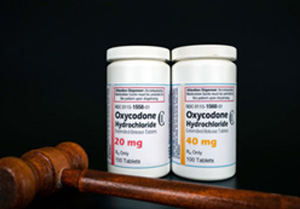
Confusion, forgetfulness, and loss of concentration and mental clarity are symptoms of brain fog. Overwork, insufficient sleep, stress, and excessive internet use can all contribute to this. Brain fog is thought to involve cellular-level inflammation at elevated levels and changes in the hormones that control your mood, energy, and focus. The entire system is thrown off by the hormone levels that are out of equilibrium. Moreover, brain fog syndrome can result in additional diseases like obesity, irregular periods, and diabetes mellitus.
How should you react if you think you could be suffering from COVID-19 brain fog?
The first and most crucial step is to visit your doctor and discuss all of your persisting symptoms with them. They should include any mental fog, any neurological symptoms (such weakness, numbness, tingling, or loss of taste or smell), as well as breathing issues like palpitations and shortness of breath.
COVID-19 can have long-term impacts on other organ systems in addition to having an immediate impact on the brain. Some lingering effects that so-called long haulers may have include fatigue, bodily aches, inability to exercise, headache, and trouble sleeping. Some of these issues could be the result of long-term harm to their kidneys, lungs, heart, or other organs. injury to these damage to these organs – or even just the symptoms themselves – can impair thinking and memory and cause brain fog. How can you concentrate if you were up half the night and awoke with a headache?
Supplements for brain fog?

Brain fog can have many causes, including stress, lack of sleep, poor nutrition, and certain medical conditions. Therefore, it’s important to identify and address the root cause of your brain fog. However, certain supplements may also help alleviate brain fog symptoms. Here are some supplements that are commonly used for this purpose:
- Omega-3 fatty acids: Omega-3 fatty acids are important for brain health and may help reduce inflammation, which can contribute to brain fog. You can get omega-3s from fatty fish, such as salmon and tuna, as well as from supplements.
- B-complex vitamins: B vitamins are essential for brain function and energy production. A deficiency in B vitamins can lead to brain fog, so taking a B-complex supplement may be beneficial.
- Magnesium: Magnesium is important for many bodily functions, including brain function. It may help reduce anxiety and improve sleep quality, both of which can contribute to brain fog.
- Ginseng: Ginseng is an herb to improve mental function. It may help reduce fatigue and improve cognitive function.
- Rhodiola rosea: Rhodiola is an adaptogenic herb that may help reduce stress and improve mental function. It has been used for centuries in traditional medicine to improve focus and reduce fatigue.
Remember to talk to your doctor before taking any new supplements, especially if you are taking medication or have a medical condition.
Best supplement for brain fog for Covid is Immunefence
Suggest use ImmuneFence for Covid Long hauler support, see www.ImmuneFence.com
Next Steps if you need medical assistance for your headache:
As the next step, to plan and schedule your libido treatment please request your consultation with our physicians.
To schedule an in person on Tele-medicine appointment,
please call our office at 1-212-794-8800 or email us at info@patientsmedical.com. We look forward to hearing from you
Our medical center in New York City.
Patients Medical PC
1148 Fifth Avenue, Suite 1B
New York, NY 10128
About Patients Medical Patients Medical

PatientsMedical.com is headed by Dr. Rashmi Gulati, MD who is a board-certified physician with over 20 years of integrative, functional and internal medicine experience.
Patients Medical is a holistic wellness center dedicated to helping its clients discover health and rediscover vitality. Their physicians combine the best of conventional and holistic medicine with state-of-the-art equipment to provide comprehensive care and treatment to their patients. They focus on the root causes of secondary medical conditions, integrating modern medicine, holistic practices, and natural supplements to fast-track healing and prevent disease. Every year, thousands of existing and new patients continue to visit the center, seeking an alternative medical approach to a variety of health issues.
In addition, Patients Medical provides access to over 15,000 affordable supplements on their affiliated website: www.MySupplements.Store


